The New School Free Press talked to students at The New School to learn how they’re taking advantage of the city and gaining real-world experience in their fields of study. In this Q&A series, the Free Press interviewed students in various fields to gain insight into how to break into the industries they hope to build careers in.
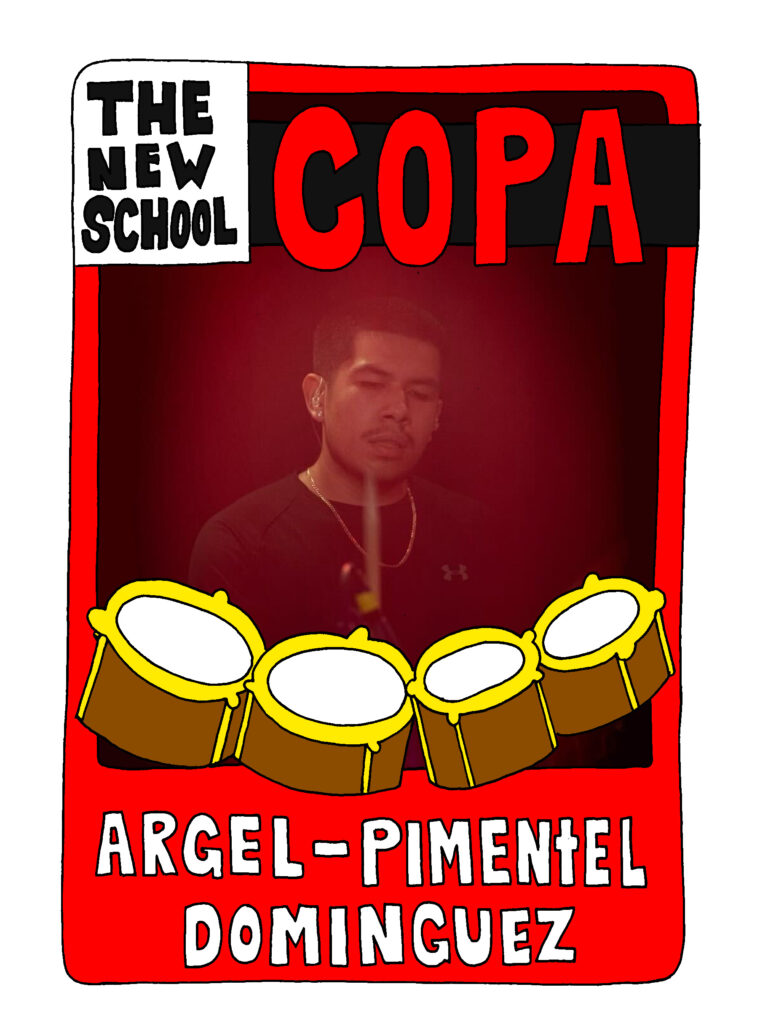
Argel Pimentel-Dominguez: College of Performing Arts
School/Major: Third Year at School of Jazz and Contemporary Music studying drums.
Job: Studio Technician at Bob Elliot’s Music Makers.
Pimentel-Dominguez works between 20-30 hours a week at this music studio on 8th Avenue and 36th Street.
Jane Lewis, Free Press reporter: How did you find this job?
Argel Pimentel-Dominguez: Through The New School. My friend found a poster on a bulletin board in the school and she told me I should apply.
JL: Did you start unpaid?
APD: I started as an intern and worked unpaid for three months. I did what I had to do, like, crazy stuff at that time. I’m practically running the place myself now. My boss told me by the time I got out of school I could get hired full time.
JL: What part of this job do you find rewarding?
APD: The parties are pretty awesome, and so is working with talented artists. We had Queen Bee Entertainment – which is Lil’ Kim’s label – come in, and they did some pretty cool shit. I recently worked with Leon Robinson. Leon is a great, cool guy. There’s a variety of people that come in and you get to work with. So that’s pretty cool.
JL: For other students who want an internship in your area of study, would you encourage them to do the same thing as you?
APD: I’d tell them to just get into any studio and learn as much as you can, even if it’s as an intern. There are a lot of studios in New York City because there’s no space for people to practice. You can’t record an album in your apartment, so there’s always lots to do at studios.
JL: What about music and drumming makes a frustrating job worth it for you? What do you love about it?
APD: It’s cool to hear something you make. Like having an idea in your head and then creating it. I also just like listening to everything, absolutely everything. Right now I’m working with my roommate Charlie to record a song and I give him input and I make him redo tapes because I’m very particular on what I want to hear. But that’s exciting to me because you get to build it yourself and learn how to use your programs and software.
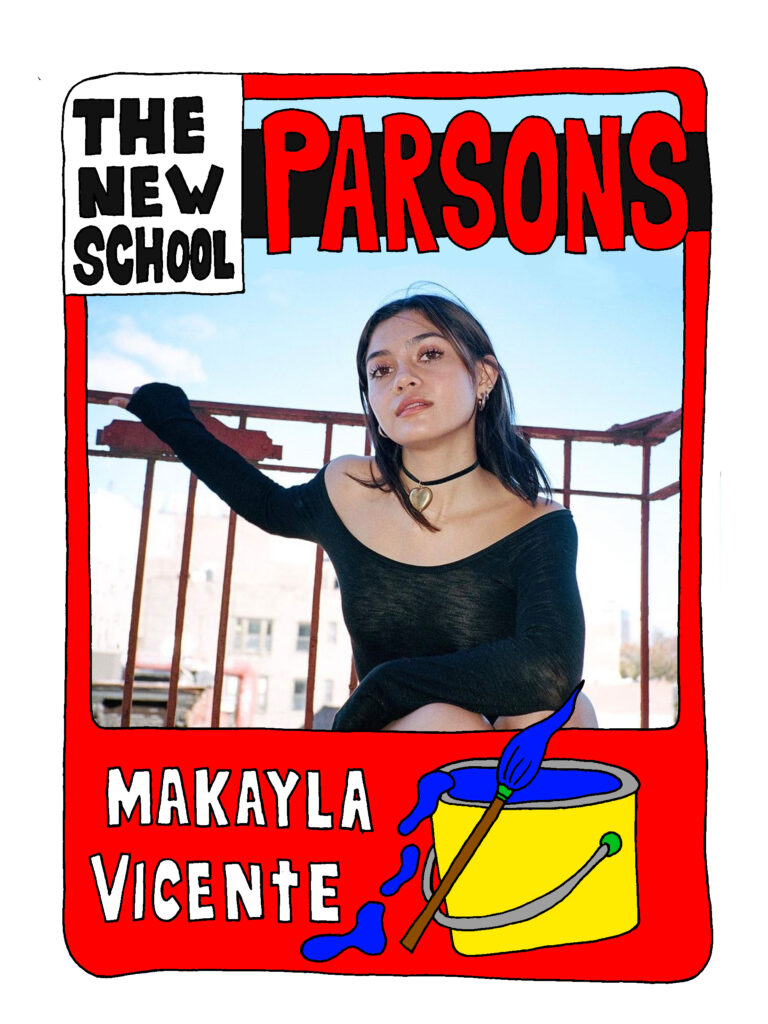
Makayla Vicente: Parsons School of Design
School/Major: Third-year at Parsons majoring in Integrated Design with a pathway in Creative Entrepreneurship.
Job:
Makayla Vicente works as a PR Intern at Double Soul Socks, a small and growing sock company based primarily on Instagram. As a third year student majoring in Integrated Design with a pathway in Creative Entrepreneurship, we talked to her about the benefits of working in a smaller, unique team as it expands and how it relates to her coursework.
Sasha Fuetsch, Free Press reporter: What do you do at your internship?
Makayla Vicente: I have a remote internship for a smaller brand called Double Soul. They’re primarily based on Instagram, even though they do have an independent site. But, they’re not in stores. The internship is a PR branding internship.
SF: So what does that mean?
MK: I curate PR lists, set up brand collabs, and identify brands that we might want to do limited launches with. We’re now moving more towards community building events, so organizing those is going to be a new thing I’m taking on. Because it is so small I kind of get to dip my toe into a lot of areas of what goes into building a small brand, which has been a really cool experience.
SF: How did you hear about the internship?
MK: They came across my [Instagram] page. This was when they were just doing community outreach stuff, sending people direct messages on the app, and I happened to be one of those people. So then for two/three months, I did some commission work for them. I made graphics that they used and they paid me as a one-off thing. After that, they consulted me on some stuff and asked me to help with a PR list for the first time. There was this kind of gray area during those first few months, where they’d bring me on for a project and then they would consult me really casually outside of the project on something else. But then at a certain point, I felt like I needed to be the one to assert myself and know my worth.
SF: Are you paid or unpaid now?
MK: I don’t have a certain amount of hours that I have to log. I meet with them and I have goals that I have to meet by the end of week, the end of month. But it’s incredibly flexible in the sense that I’m not being paid hourly, I’m being paid monthly. Whether that means I work six hours a day one day, and maybe an hour and a half the next, as long as I’m able to get the work done. they don’t mind what hours I work.
SF: How do you balance it with schoolwork and other things that you have to do?
MK: My best friend is Google Calendar at this point. I was never a calendar girlie. But now I have so many things – between classes and commuting.
SF: Did you find that difficult in the beginning, to kind of make that switch to being on top of yourself to get stuff done?
MK: My personality type is that I would rather be working. Things that people are in an office to do for six hours a day might be a two hour task if they just sit down and do it. It was more of a mental adjustment. Like [reminding myself] you can sit back and relax and like whatever. On the other hand, because they can text me at any time, I’m also never not working.
SF: Did The New School specifically help you build skills that are helpful or useful in this internship?
MK: I’ve had two classes in strategic creativity and PR, Branding and Marketing. It makes so much sense, I can’t wait to learn more and to implement this in my own brand one day. I’m building the vocabulary to communicate with Double Soul at this point. It’s making me a better asset to them and I feel a lot more confident now that I’m able to explore my pathway.
I was nervous because I felt like in school, I was studying all these things that were cool, but weren’t what I wanted to do with my life. I felt like working was providing me this experience that was actually valuable in that sense. But now I’m finally in a position where the two are aligning, and I knew I would get there.
SF: What’s the best or most rewarding part of the job for you/the most beneficial developmental aspect?
MK: It’s given me a lot of opportunities to learn all these moving parts. I’ve done a lot of maturing. What’s really important and what I’ve learned from this internship is that I don’t think I’ll ever want to work for a brand that I don’t genuinely like or see myself engaging with.
Working for a bigger brand would be really cool, having those names to put on my resume might look really flashy. Because Double Soul is a small business, I’ve learned hands-on what it is like to build this brand. I think there’s something really valuable in having this more intimate relationship with the brand. As they’re growing, I’m also growing.
SF: What’s your advice to other students who are kind of trying to get internships in their area of study?
MK: I would say speak up for yourself. It might be awkward. It’s so weird to be like, ‘this is my experience and why I deserve to work there.’ Take opportunities for yourself before you admit that someone else can do it. Just because you’re in a creative field does not mean that you have to feel belittled in your position, especially if that’s what you studied. That’s what you’ve been passionate about. Just because this is your first job, you are still qualified. You are an asset. And I think it’s easy to forget that.
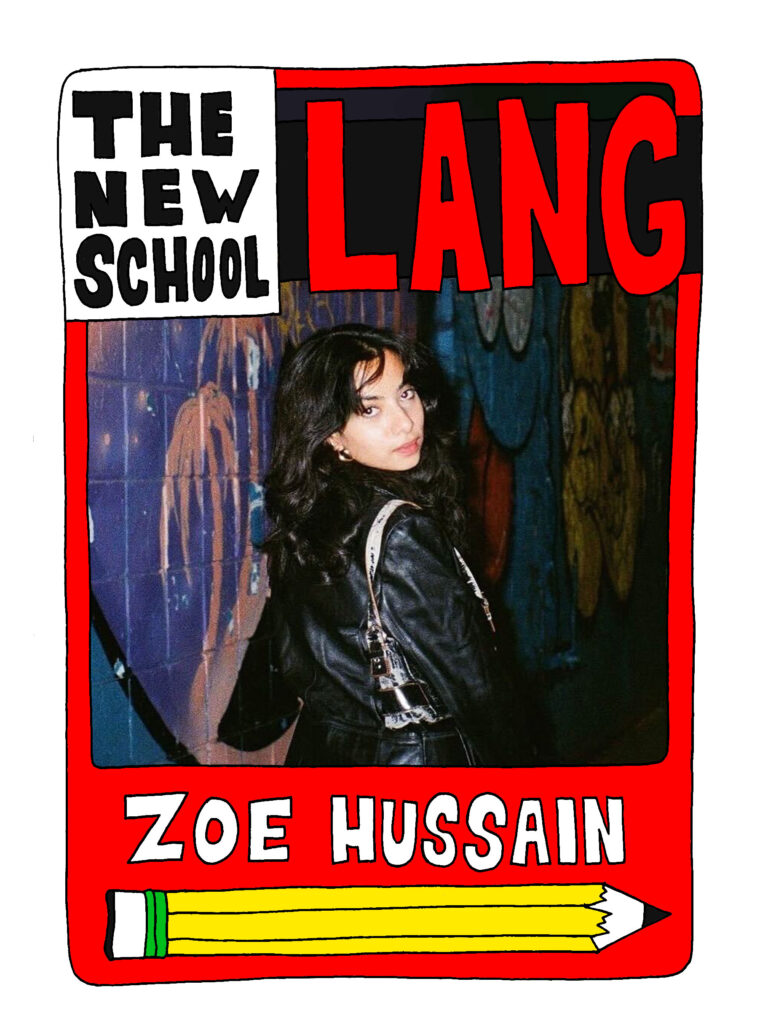
Zoe Hussian: Eugene Lang College of Liberal Arts
School/Major: Second-year at Lang studying Journalism and Design.
Job: Creative Media intern at the New York City Civic Engagement Commission
Zoe Hussain is a second year Journalism and Design student at Eugene Lang. Last Spring, she applied for the Lang Social Sciences Fellowship and spent this past fall as a Creative Media Intern at the New York City Civic Engagement Commission. This spring, she’s completing the research portion of her fellowship on how disinformation spreads on Twitter and its impact on elections. We talked with her about what it was like to work in government through the Lang Fellowship.
Bella Gallo, Free Press reporter: How did you hear about the internship at the New York City Civic Engagement Commission?
Zoe Hussian:
It’s a part of a fellowship, actually, through the school, called the Lang Social Science Fellowship. You interview with different internship sites. I interviewed [with the New York City Civic Engagement Commission] last spring. This fellowship requires you to do an internship in the fall and then research in the spring. I’ve ended up doing my research on voting — I wasn’t sure if I actually wanted to do something related to my internship, but I ended up there anyway.
BG: What was the application process for the fellowship like?
ZH: I saw a flier in the 16th Street building last year. I was just looking for different opportunities for internships. The application was a Google Form; I submitted a writing sample, cover letter, and just basic questions about myself. There was an interview with the fellowship coordinator at the school and two interviews with the internship site after that.
BG: What type of responsibilities did you have primarily?
ZH: For the most part, I was making social media graphics, advertisements, press releases every month, and monthly newsletters. Just handling whatever media stuff they needed.
BG: What types of topics were the graphics and press releases on?
ZH: Mostly voter engagement. It was a lot of advertising for events they had for participatory budgeting. They had a bunch of idea generation sessions. It was a lot of promoting those things that were happening earlier in the fall. It was a lot about poll sites and interpreters and things like that.
BG: Was the internship paid through the school, or was it school credit?
ZH: The school gave a stipend, and every two weeks you would get a part of the stipend. You had to do about a hundred hours over the semester. When you break it down, it was roughly $22 an hour. It was pretty well compensated, especially because most of my days were remote anyways. For the research component, I’m getting four credits.
BG: What do you feel you learned the most through the internship?
ZH: I learned that I don’t want to work for the government because there’s a lot of bureaucratic nonsense. It’s hard to get things done. In general, I learned office etiquette. I’ve never been in a more corporate setting, and it was interesting to see people from very different walks of life working there together and to collaborate with people older than me.
BG: Would you recommend this to other students?
ZH: Definitely. It’s a well paid job, and you get a research mentor – a PhD student. You meet with them throughout the semester, which helps when you actually do the research. You meet new people and get new perspectives on academia, but it’s a time commitment. It’s a brain commitment, more so. It’s not super easy, but it’s worth it.
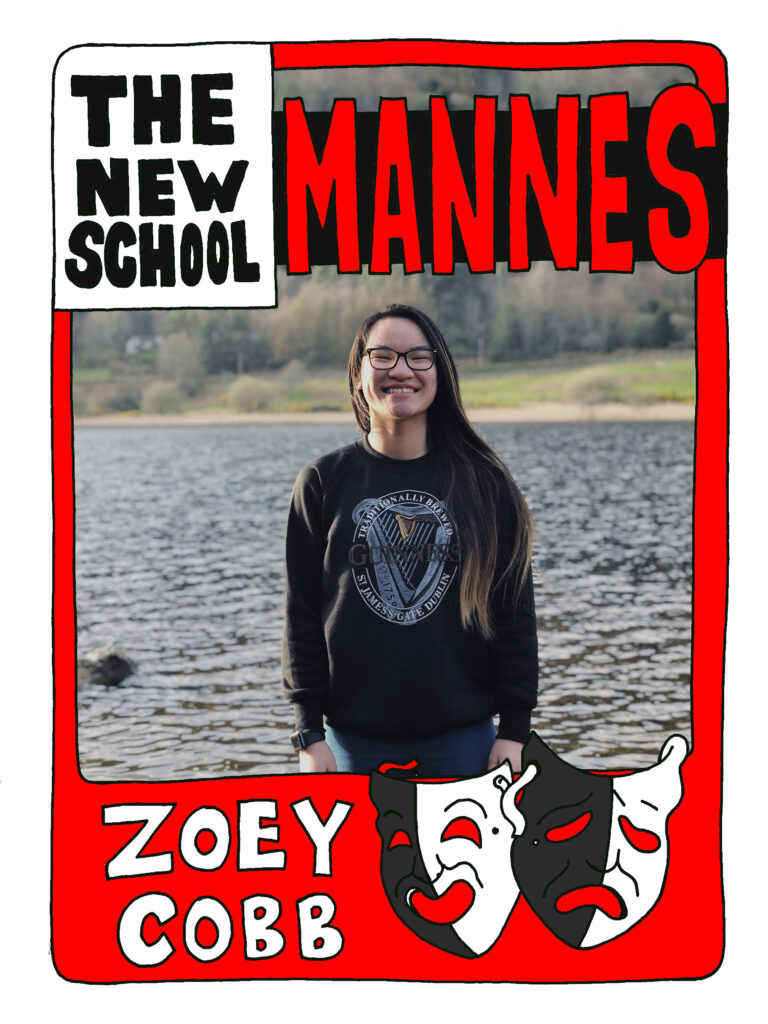
Zoey Cobb: Mannes School of Music
School/Major: Second-year grad student at Mannes studying Percussion Performance.
Job: Percussion Coordinator for the Percussion Studio
Cobb is both a classically trained percussionist and a contemporary artist. She is currently enrolled at The New School’s Mannes School of Music where she is pursuing her masters in Percussion Performance.
RS: How did you find out about this opportunity?
ZC: I found out about this through the head of the Percussion Studio, there was an email sent out. There was no portal or anything, at least not for this job application, so we just work through MyDay. Once I had applied it took about a month for them to get back to me.
RS: Do you feel like internship / job opportunities are accessible for students at The New School?
ZC: Not really. I think at first you have to look for them yourself and then maybe once you put in the work yourself, opportunities might become more available. But the school doesn’t outright give you access to these opportunities. It’s kind of like, in a basic email, which is how I found out about my current job – because my head of department sent an email.
RS: What are some responsibilities as Percussion Coordinator?
ZC: I handle equipment moves, cleaning and organizing practice rooms, and basically handling anything that’s percussion instrument-related. There’s just me and one other employee in this position, so we split the workload between the two of us.
RS: Is this a paid position at the school?
ZC: It is a paid position. I get paid $17 an hour and the minimum wage here is $15 so it’s a little more which is nice, but we’re capped at working 20 hours a week. It’s not enough to pay for rent without support from a part-time or full-time job but it’s enough to pay for utilities and groceries.
RS: Has your work experience been positive so far, in comparison to past work experiences?
ZC: It’s been good so far, for the most part. It’s very different here compared to my work experience back home in Iowa. Minimum wage in Iowa is supposed to be $15, but I got paid 12 bucks an hour. At least here I’m getting paid $17, so it’s much better.
RS: Do you have any tips for other New School students looking for job opportunities on campus?
ZC: I don’t know anybody that has used the Career Services portal. I think a lot of the people that I know have gotten opportunities through the connections they’ve made here at The New School. You know, talking to professors and department heads and friends, but also by staying on top of events and opportunities sent through emails.
These interviews have been edited for length and clarity.

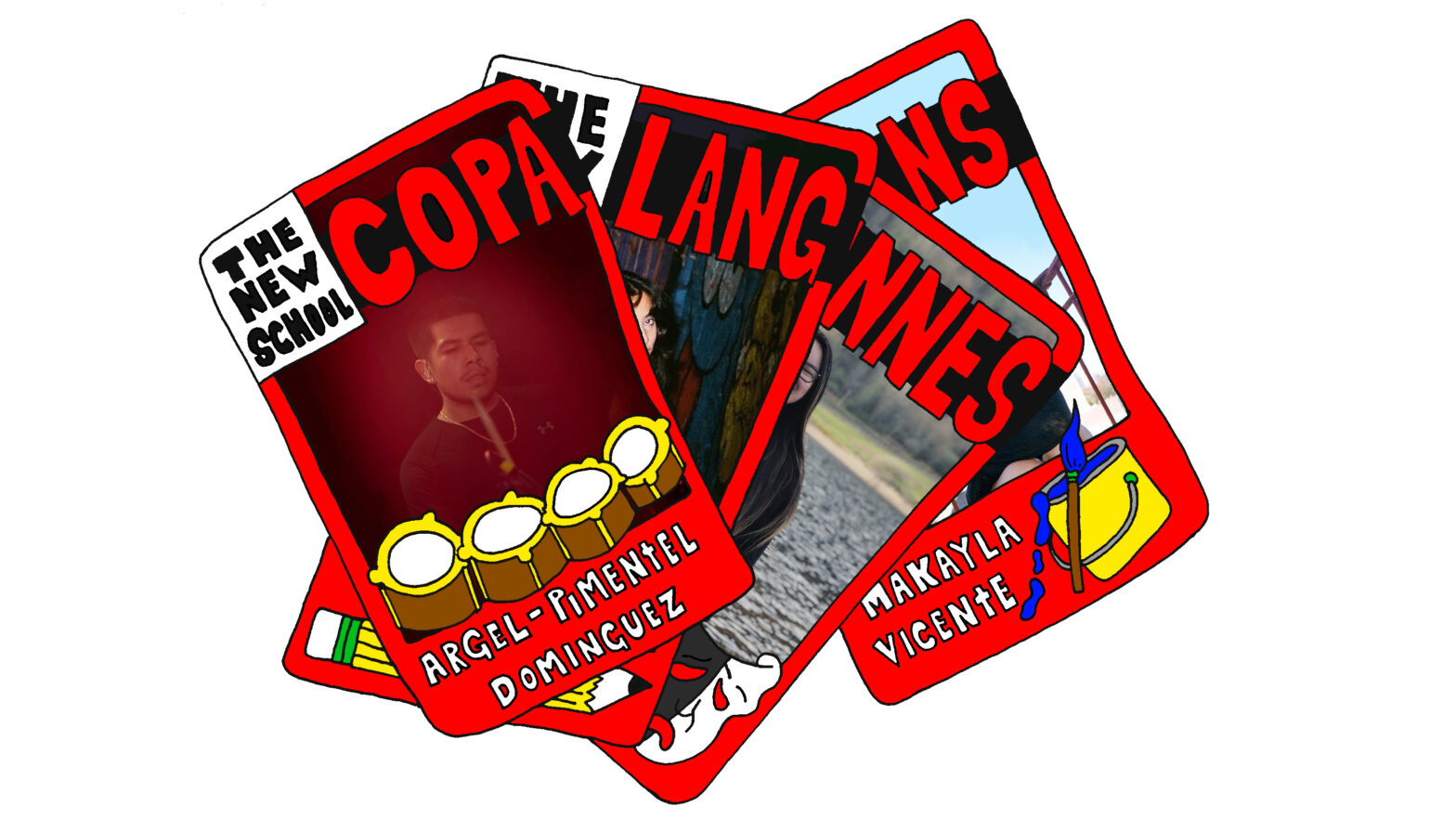






Leave a Reply